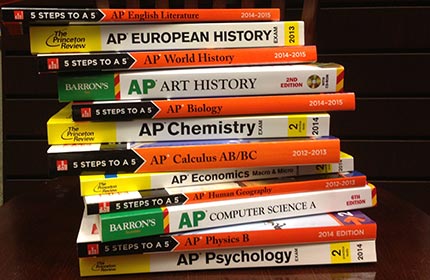Another Misleading Attack on Charter Schools from the BTU
A recent Boston Teachers Union e-bulletin grossly misrepresented data on Boston students’ performance on Advanced Placement (AP) exams, claiming that district high schools outperform public charter high schools. Pioneer’s analysis demonstrates that the BTU’s manipulation of the data is meant to create a false perception about charter schools and to cover up dismayingly poor results in BPS’s non-exam schools.
The BTU newsletter shamefully includes in its calculation of districtwide AP exam results the City’s three exam schools, which have a passing rate (an AP test score of three or better) of 72%. Remove the City’s elite exam schools, and BPS’s non-exam district schools have a passing rate of only 14%.
The City’s public charter schools do not accept students on the basis of entrance exams; rather they accept students based on lottery. Tens of thousands of Boston students are either in a public charter or on a public charter waitlist. Not only do Boston’s Commonwealth charter schools far outperform district schools (see below), but they also have an AP passing rate of 25%.
Read “Performance Analysis: Boston Public Schools Scores on Advanced Placement Exams 2012-2013,” Pioneer’s new policy brief, for details.
“Using misleading data in an attempt to gloss over the very real gap in educational outcomes between Boston’s district and publiccharter schools helps nobody but those who want the status quo to continue,” says Jim Stergios, executive director at the Institute. “Instead of sitting around strategizing about how best to misrepresent data, the BTU’s leadership ought to focus on how to learn from the extraordinary performance in the City’s public charter schools.”
Boston’s charter schools are doing more to close achievement gaps for low-income and minority students than any other group of public schools in the country, according to a 2013 study by Stanford’s Center for Research on Education Outcomes (CREDO). A typical charter student enjoys more than two years of learning in each academic year, in math and reading. Three Boston charter high schools are ranked number one in the state based on MCAS performance; six are ranked among the city’s top 10 non-exam high schools in English and math.
Boston parents know this. That’s why, last year, there were 15,000 children on Boston charter school waiting lists for only 1,700 available seats. Learn more about the benefits of Boston charter schools. Join the Boston2in1Now campaign to help more children in your community attend great charter schools now.
Watch our one-minute Youtube video encouraging moms and dads to join the Boston2in1Now campaign to lift the cap on great charter public schools:
“As a parent, I deserve more choices…”
Would you send a letter to support the expansion of charter schools? It’s easy. Just visit: Boston2in1Now.org to send a letterto legislators, newspaper editors and others in your community telling them you think it’s important to give parents more options for their kids.


